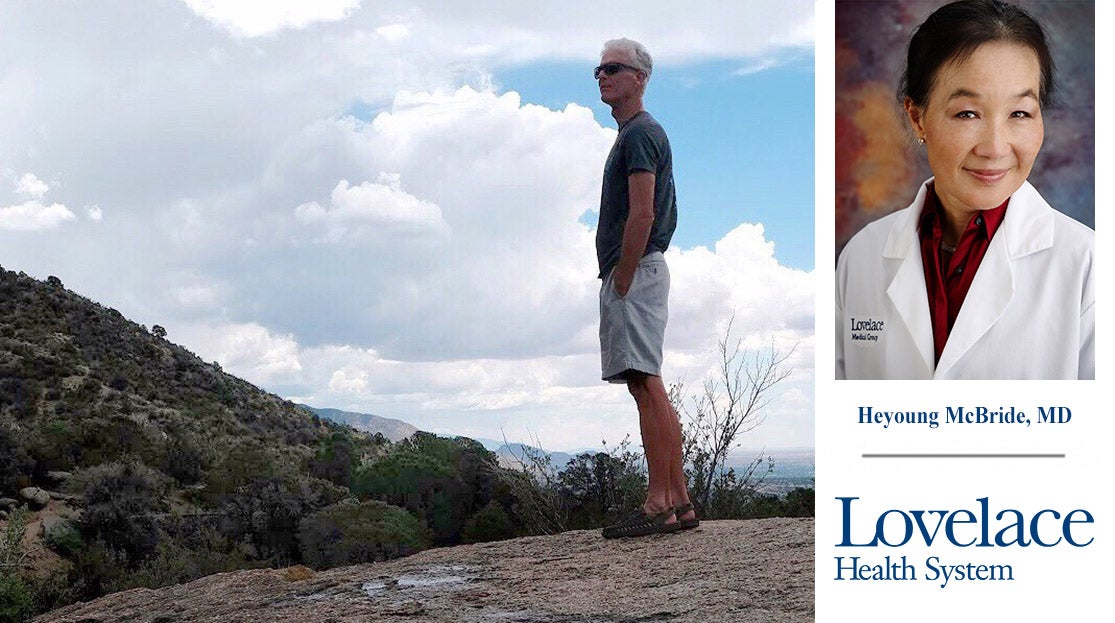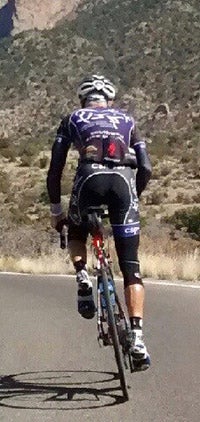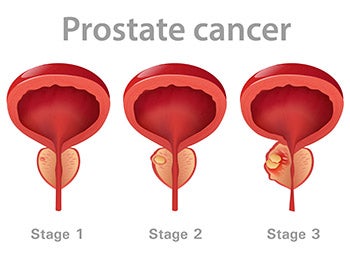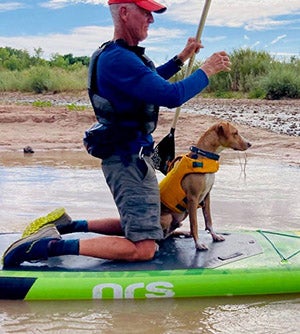
Slowing down is rarely an option for Dean Buzbee.
A 68-year-old living in Albuquerque, Dean has been a stellar, endurance athlete for more than 43 years, competing in cycling, running races and triathlons. He also had a successful career conducting mental competency evaluations at universities for 30 years, before retiring in 2004.
He started riding a bike in college as a psychology major. With more free time after graduate school, he took up bicycle racing as a hobby and started entering competitions.
 “I competed in road races for about 20 years, traveling throughout the United States, South America and Europe,” Dean explained. “Basically, it was like being a substitute teacher. There are lots of small cycling teams throughout Europe. If your team of six guys enters a race and a full-time member gets sick, then I would take his place.”
“I competed in road races for about 20 years, traveling throughout the United States, South America and Europe,” Dean explained. “Basically, it was like being a substitute teacher. There are lots of small cycling teams throughout Europe. If your team of six guys enters a race and a full-time member gets sick, then I would take his place.”
Over time, Dean built a network of contacts in many countries. “My contacts helped me get picked up by different teams. My job gave me a very flexible schedule, so I’d pay my own transportation costs and bike all over Europe for six weeks at a time,” he said.
During his athletic career, Dean competed in races on a variety of surfaces. From 1980 to 1998, he was considered a USCF Category 1 Road Racer with International Pro/Am experience. From 1999 to the present, Dean completed 98 races, often finishing in the Top 3 of his age group.
“Some of the other guys on my teams thought it was a little weird for me to spend my vacation with competitive cycling, especially since I was older than everybody else,” he said. “For me, it was always just a hobby.”
Still, most people don’t have hobbies in which they train 200 miles every week, especially in their 60s.
PSA test and diagnosis
In 2020, as COVID started affecting patients and hospitals across the country, Dean had an annual exam with his primary care physician. The exam included taking a blood sample for a prostate-specific antigen (PSA) test, which is used to screen for prostate cancer.
 This test can detect high levels of PSA present in the blood. PSA is a protein produced in the prostate, a small gland located below the bladder in males. A high level of PSA may indicate the presence of prostate cancer.
This test can detect high levels of PSA present in the blood. PSA is a protein produced in the prostate, a small gland located below the bladder in males. A high level of PSA may indicate the presence of prostate cancer.
Dean’s PSA levels came back twice as high as previous levels, so his PCP referred him to Dr. Aaron Geswaldo, Lovelace Medical Group urologist.
“Dr. Geswaldo gave me a physical exam and could tell that my prostate was enlarged, but couldn't really tell much else until we did a biopsy, which I agreed to,” Dean explained.
“The biopsy results showed prostate cancer at a level between 2 and 3, out of 5. Dr. Geswaldo described the option of surgery, which usually involves six months of recovery time. After that, you have to see if the cancer returns and what your survival rate will be.”
After inquiring about other options, Dr. Geswaldo referred Dean to Dr. Heyoung McBride, the medical director of radiation oncology at the Lovelace Cancer Center. “Dr. McBride explained that radiation therapy would really not change my lifestyle or my exercise levels. After radiation, I would reach the same point that surgery patients reach, with regard to survival and reoccurrence. So, I chose to undergo radiation therapy instead of surgery,” he said.
Radiation therapy
As he started the radiation sessions, Dean cut back on his training in order to build up his energy reserves, just in case his body had unexpected side effects from the radiation.
“When a patient undergoes radiation therapy for prostate cancer, generally most patients can carry on with their normal daily lives while undergoing therapy,” said Dr. McBride. “I can easily see why Dean didn’t want to take several months off from training and then work more months to get back to his baseline fitness level, if at all. I think his identity and confidence as an endurance athlete was very important to maintain for his recovery.”
That summer Dean started a schedule of 28 radiation therapy sessions. “I lived close enough that I could leave the house, drive myself to get radiation and be back in 45 minutes.”
Dean didn’t have any serious complications from the radiation sessions. “The only thing that happened to me during radiation was that the entire area became inflamed. It made me feel like I had to urinate when I didn’t have to. I understand this is a normal prostate issue anyway for someone my age. Dr. McBride put me on a small dose of medication to manage it.”
According to Dr. McBride, “Any side effects of radiation therapy would be expected to be limited to the tissues included in the treatment area. The prostate cancer patient may experience temporary irritation of their urination, which is the most likely symptom. Patients can also have temporary irritation of the rectal wall just behind the prostate.” To minimize this irritation, a biodegradable buffer is often placed between the back of the prostate and the front of the rectal wall.
“Of course, the biggest concern for anyone undergoing cancer treatments is the risk of cancer returning. Cancer outcomes between prostate removal surgery and radiation therapy are very similar across the board,” she said.
Prognosis
This past November, two years after completing radiation therapy, Dean had another PSA test. When the results came in, Dr. McBride gave him a “thumbs-up” for being cancer free. He will continue seeing her every six months for the next five years. “After that time, if I’m still cancer-free, I can go to yearly checkups with her.”
Soon after he finished radiation therapy, Dean got a permanent house guest, a puppy he calls Copper. “We just celebrated his second birthday,” Dean said.
 Dean has returned to his regular training level of 200 miles a week, but now he is not training alone. While on a leash, either bicycling or running, Copper will do about 35 miles a week with Dean.
Dean has returned to his regular training level of 200 miles a week, but now he is not training alone. While on a leash, either bicycling or running, Copper will do about 35 miles a week with Dean.
“We live really close to the university golf course, so when the golfers leave, everybody shows up with their dogs. We take them off the leash and the dogs get to run all over the place, which we call ‘zoomies.’ It’s about a mile from our house to the golf course and another mile back, not counting the zoomies. If he doesn't get to do the zoomies, he doesn't sleep as well at night. The more he plays, the better we both sleep.”
As for his competitions, Dean recently ran a race north of El Paso in the Franklin Mountains. He was the oldest competitor on the course, he had the best time in his age bracket and the 13th best overall. In April he will travel to Arizona and run on the Navajo reservation at Antelope Canyon.
Still, the worry about a reoccurrence of his cancer remains present in his life. It has given him a brand new perspective.
“As we each grow older every day,” Dean says, “make sure you are spending your days with who and what is really important to you.”
Knowing Dean, he will probably be zooming down a mountain road or across a golf course with Copper at his side.
If you would like more information about the Lovelace Cancer Center, visit our website or give us a call at 505.727.7900.




